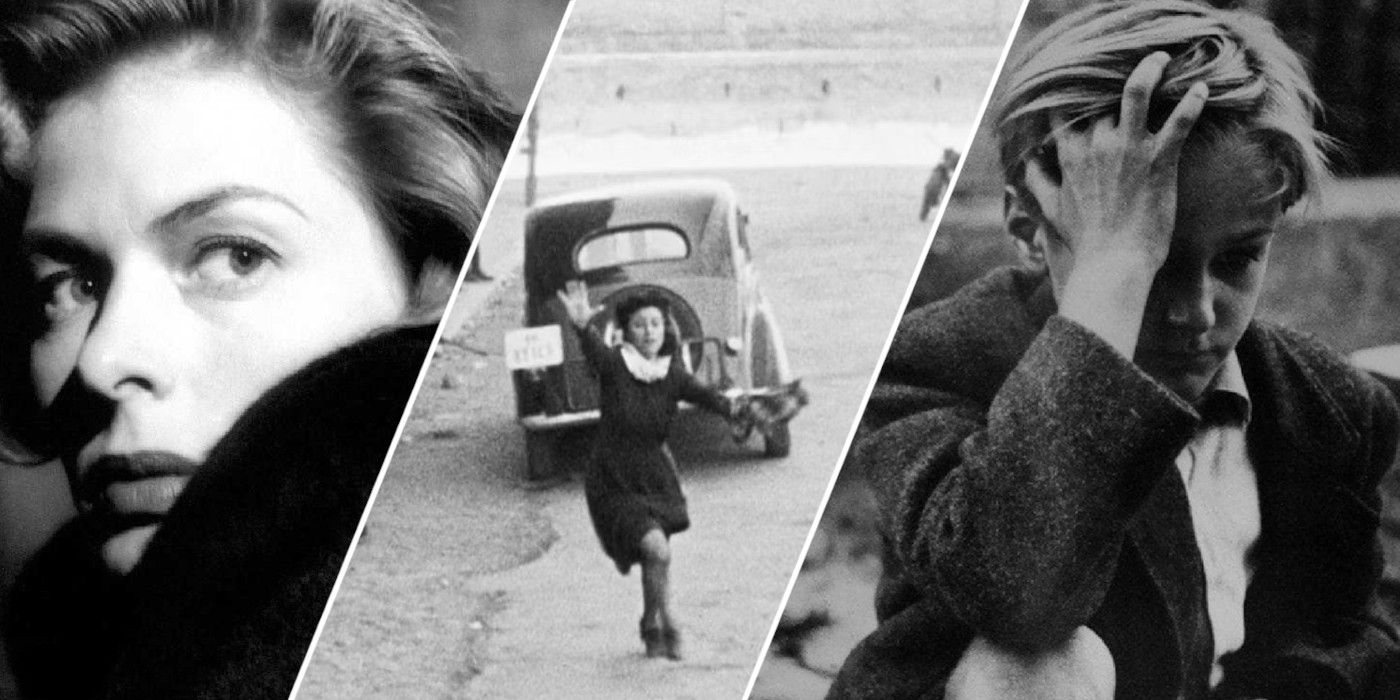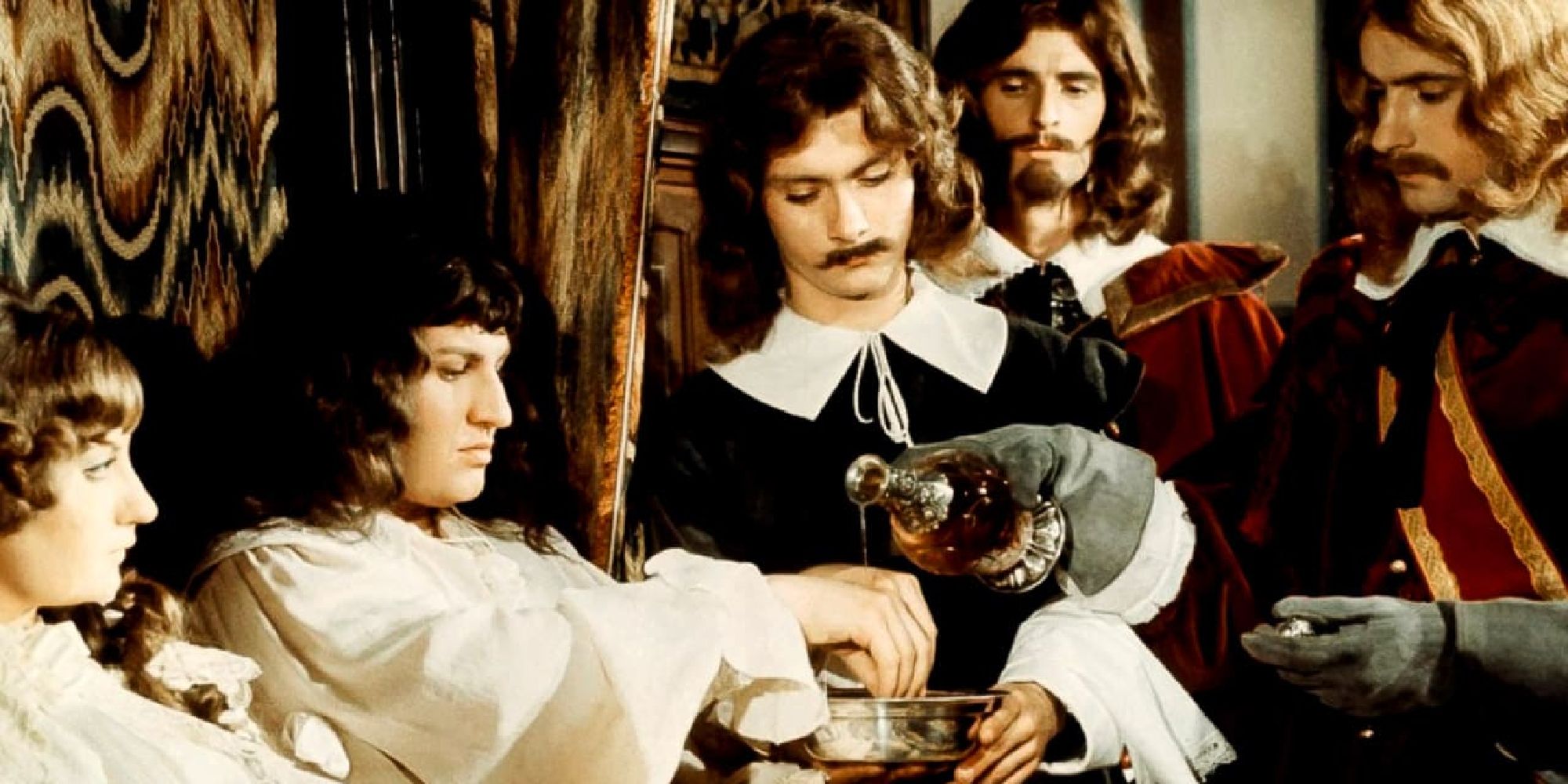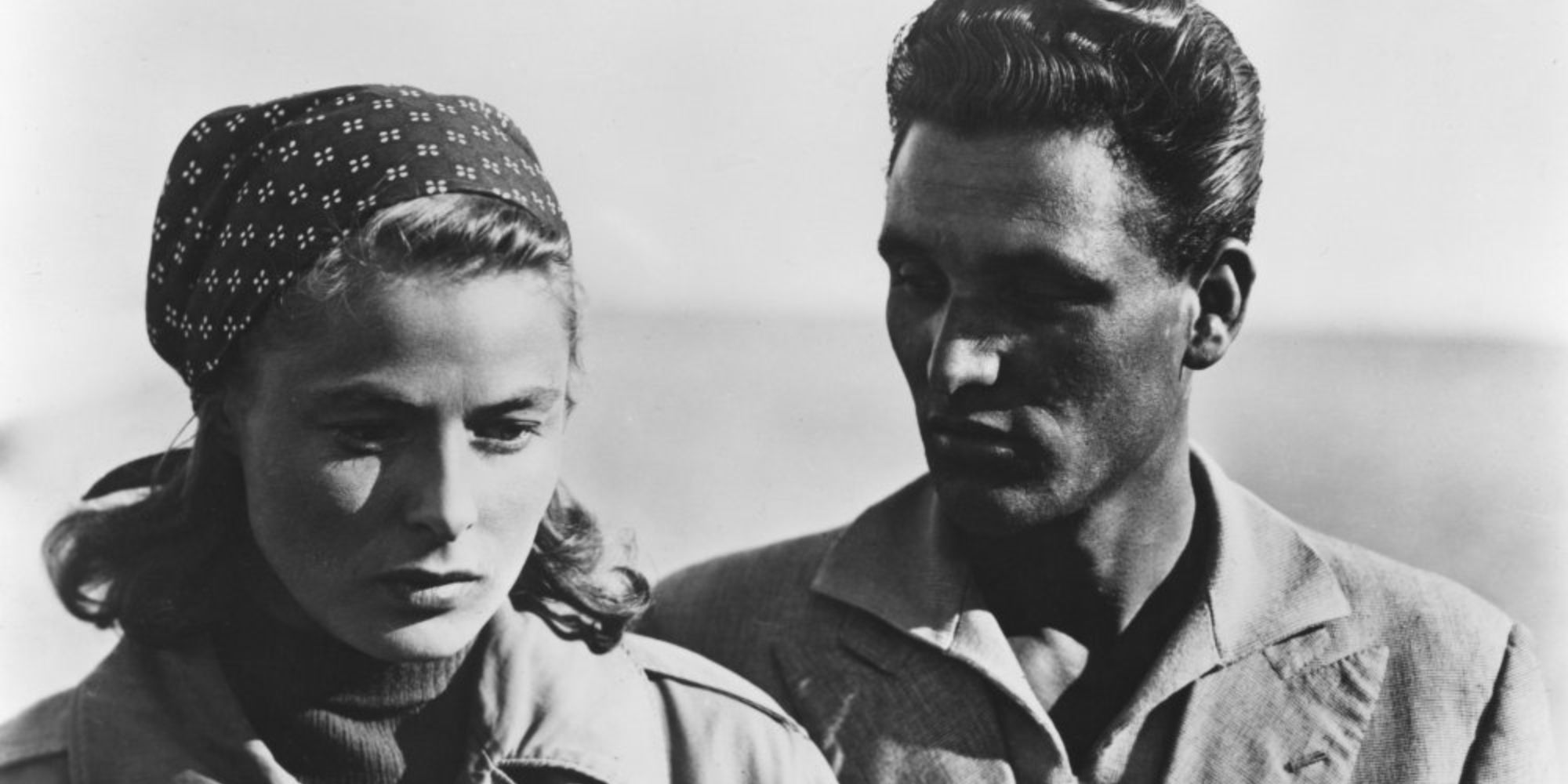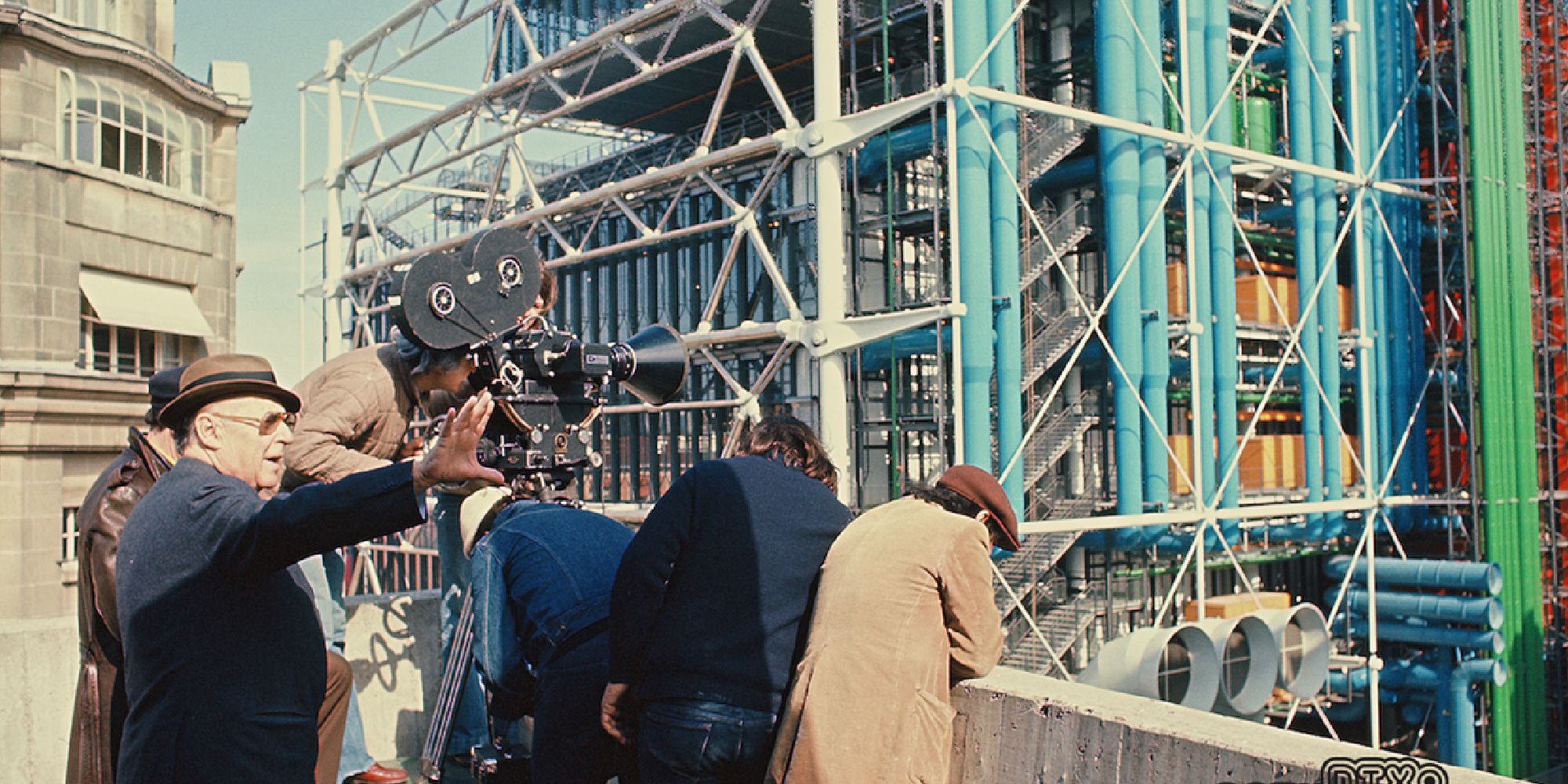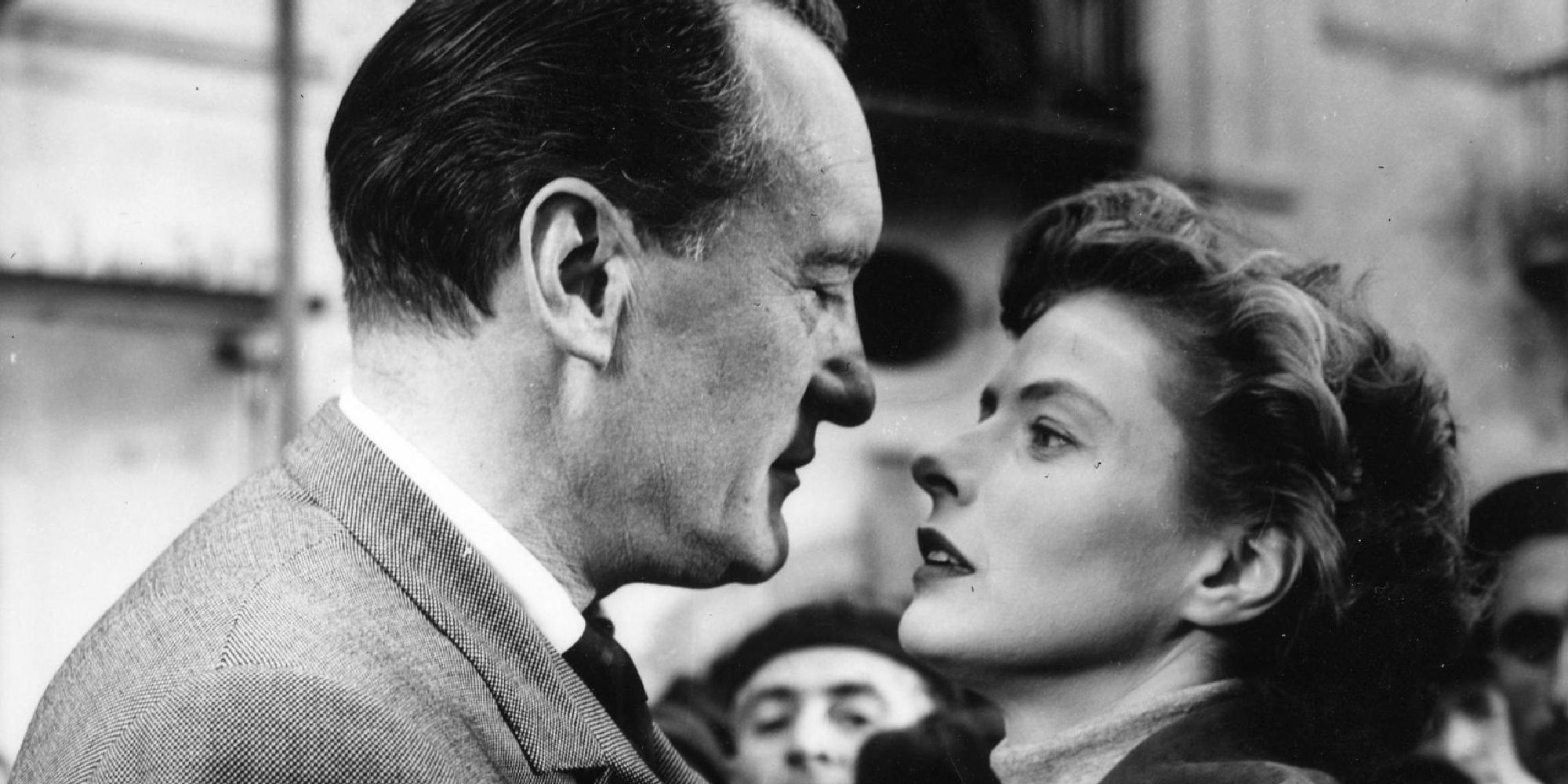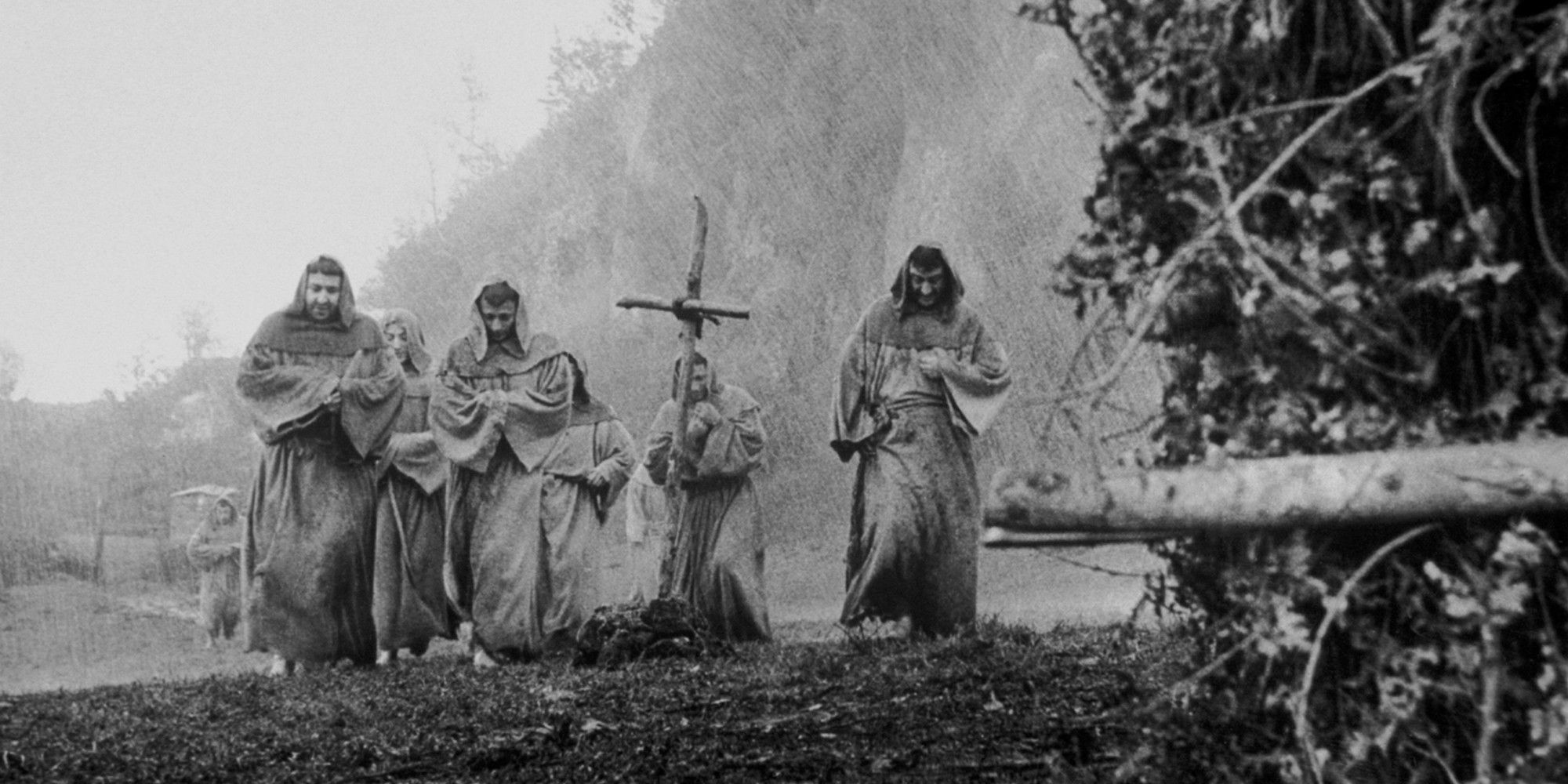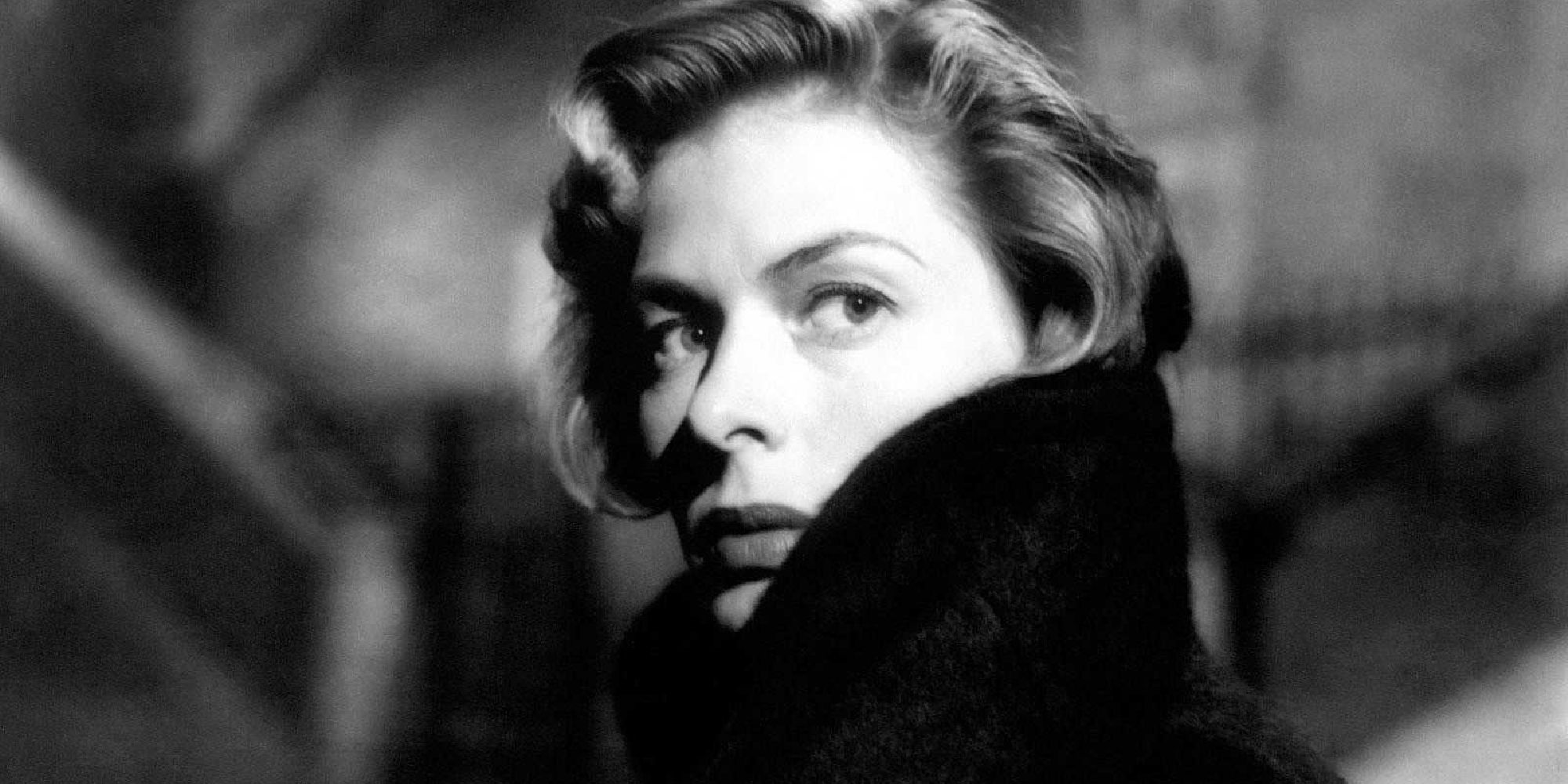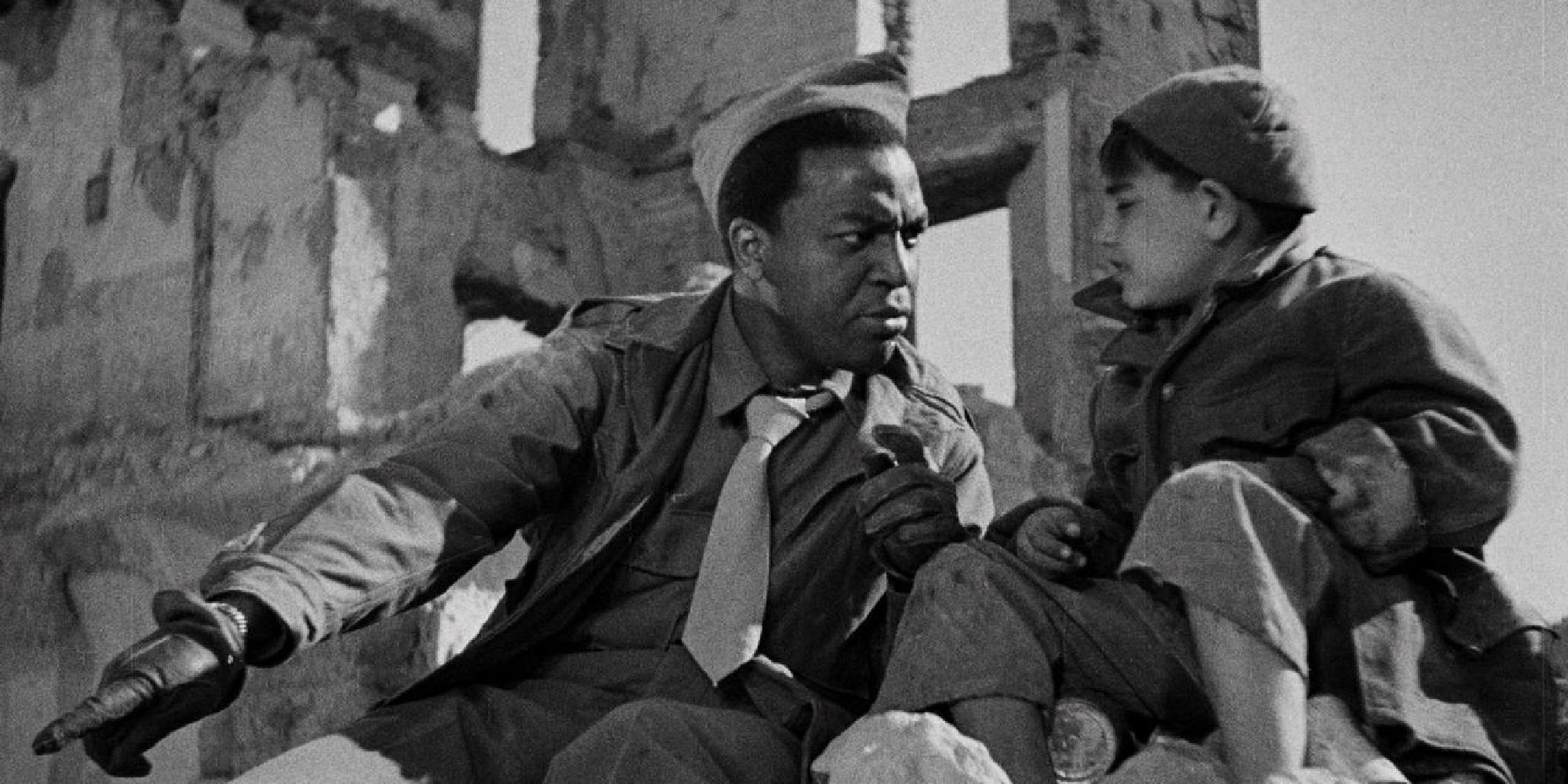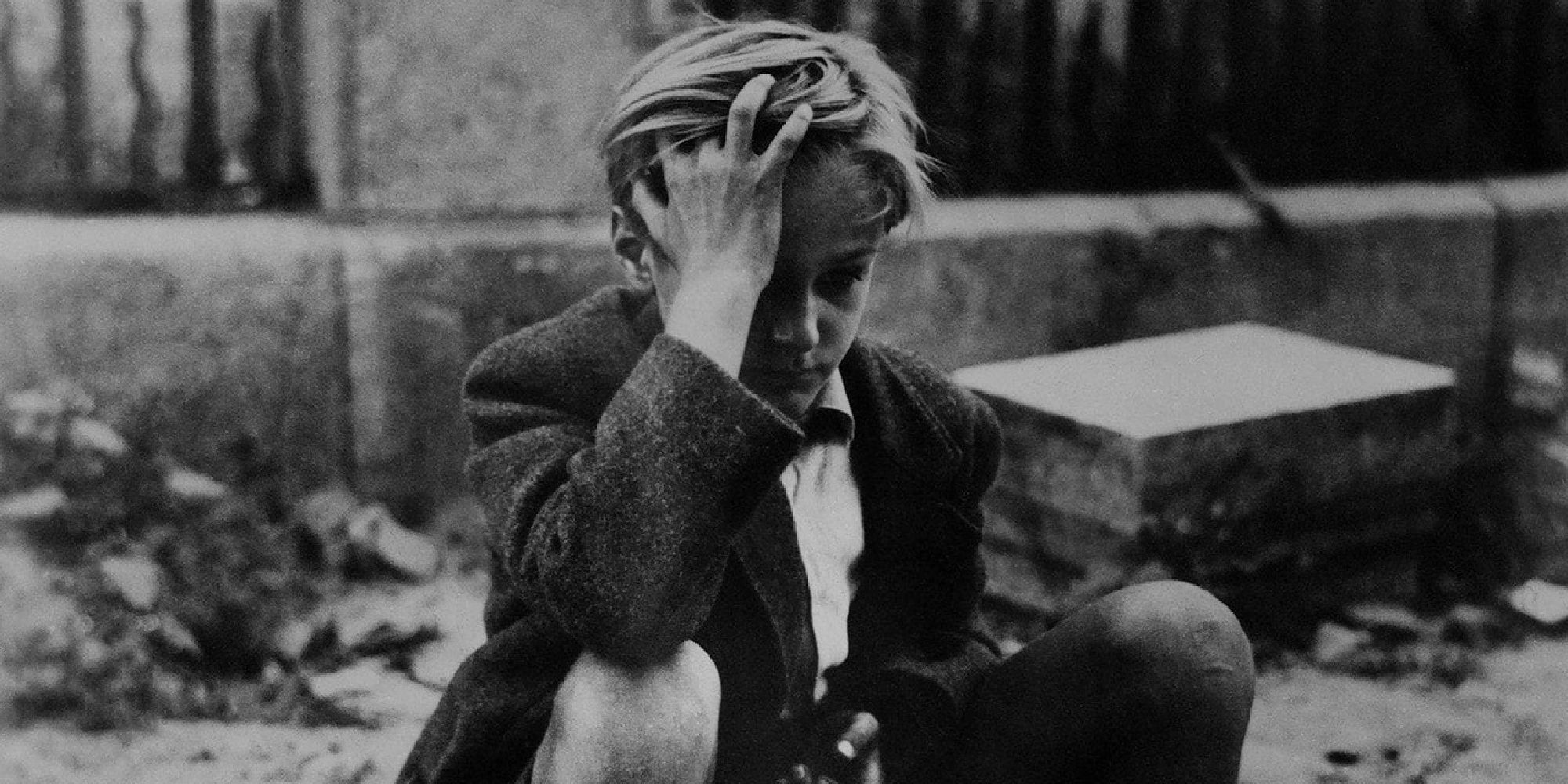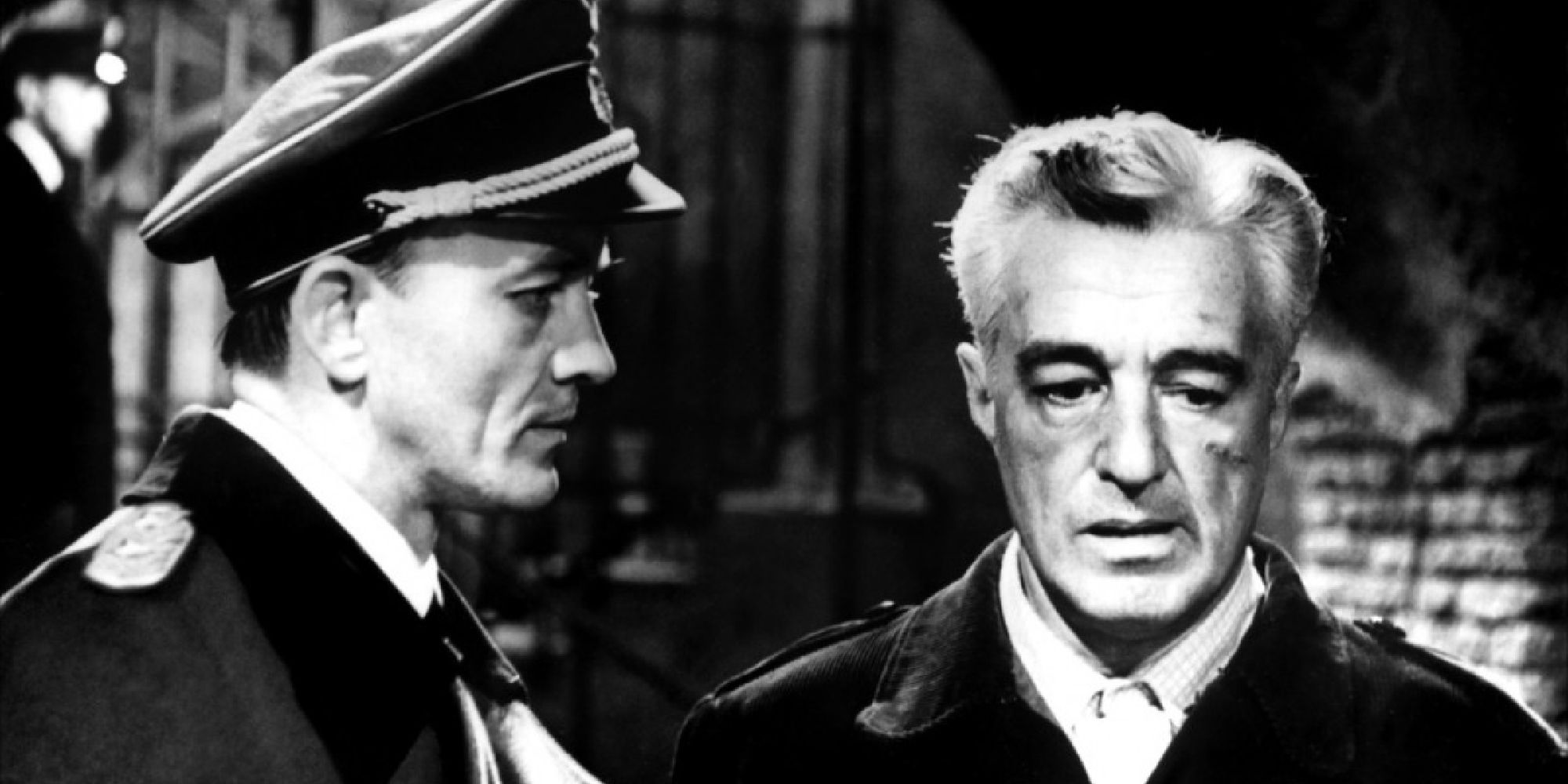Most known for his legendary War Trilogy, Roberto Rossellini was one of the most important filmmakers of post-World War II. Among the works of other neorealist directors, Rossellini's cinema stood out and had undoubtedly a huge influence over the neorealist genre, which came about from the ashes of the war as an antidote to fascist ideology; his most acclaimed piece of filmmaking, Rome, Open City, earned an Academy Award nomination and paved way for other neorealist filmmakers.
The Italian director has directed a good number of movies and TV episodes, and some of his best and most essential works are easy to rank by their IMDb score, from Italian romance movies the War Trilogy films.
10 'The Taking of Power by Louis XIV' (1966)
IMDb Rating: 7.1/10
Centering around young king Louis XIV (Jean-Marie Patte), The Taking of Power by Louis XIV is a television movie centered on royalty that depicts the aftermath of the death of Cardinal Mazarin, focusing on France's Sun King's rise to power and control.
Realism has always been Rossellini's forte — so no wonder he also excelled in directing this. Not only does the film feature amazing costumes and set design for the time, but also provides audiences with a compelling plot.
9 'Stromboli' (1950)
IMDb Rating: 7.2/10
The first Rossellini movie starring Ingrid Bergman (his wife at the time) was Stromboli — a compelling drama focusing on a young woman who ends up marrying a fisherman (Mario Vitale) to escape from a prison camp. However, when the two head to his home village Stromboli, Karin finds it hard to get used to the tough way of living.
Like all of Rossellini's work, Stromboli values simplicity. With a minimalistic yet engaging narrative, the provocative 1950 movie is set in the immediate aftermath of World War II and depicts the struggle of being stuck with small-minded people.
8 'Beaubourg' (1977)
IMDb Rating: 7.3/10
Beaubourg, centre d'art et de culture Georges Pompidou is a documentary about the high-tech/postmodern architecture of the Georges Pompidou center on its opening day seen through the eyes of the beloved director.
The intriguing feature serves as a celebration of art and human connection. It invites viewers on a trip inside the stunning culture and art center in Paris, making for a simplistic, reflective documentary that highlights visitors' observations.
7 'Journey to Italy' (1954)
IMDb Rating: 7.3/10
Katherine (Bergman) and Alex Joyce (George Sanders) are an English married couple whose marriage is on the verge of breaking down. It is when the unhappily married couple embarks on a journey to Italy in the movie that their relationship finds direction.
Journey to Italy is undoubtedly a very well-crafted execution of the anatomy of a relationship, making for an enthralling domestic drama with a singular narrative structure. In addition to being thought-provoking, the film is visually pleasing as it features beautiful Naples landscapes and some local points of interest.
6 'The Flowers of St. Francis' (1950)
IMDb Rating: 7.3/10
The Flowers of St. Francis is one of Martin Scorsese's favorites for a reason: Rossellini's episodic film is a compelling piece of filmmaking that celebrates simplicity. The religious feature chronicles about a dozen vignettes from the life of St. Francis and his followers.
With beautiful, minimalistic cinematography, the 1950 film is unconventional and genuine, providing audiences with a powerful outlook on Franciscan faith while also managing to send out humbling messages to viewers in the meantime.
5 'Europe '51' (1952)
IMDb Rating: 7.4/10
Starring classic Hollywood star Ingrid Bergman, Europe '51 centers around a wealthy and self-absorbed woman used to living in luxury. Irene's life is shaken up a bit, however, following the suicide of her son. She then begins to feel compelled to help others and turns to humanitarianism as a way of dealing with grief in postwar Rome.
Yet another good movie by Rossellini, the powerful 1952 feature — although not his best — movingly reflects on guilt and loss as it follows Irene's quest for redemption, tackling themes of politics, human rights, and religion.
4 'Paisan' (1946)
IMDb Rating: 7.6/10
Paisan continues the director's critically acclaimed war trilogy by providing viewers with six different unconnected episodes that follow the Allied invasion from July 1943 to the end of 1944, when American military personnel attempted to interact with Italian locals in the push north as German forces are forced to retreat from Sicily to the delta of Po River.
A well-crafted anthology, Paisan sends an optimistic message of hope in the face of dark times, highlighting empathy and the importance of communication (even when you do not share a language with those who need a helping hand).
3 'Germany Year Zero' (1948)
IMDb Rating: 7.8/10
The third installment of the War Trilogy, Germany Year Zero, provides an outlook inside the life of a young German boy (Edmund Moeschke) as he struggles with the difficult task of providing for his family at only 12 years of age in the aftermath of World War II in Berlin.
A very emotional watch throughout, Rossellini's film perfectly illustrates grief, showcasing the devastation, despair, and poverty of postwar Germany and highlighting the horrors brought upon the German people affected by the catastrophic outcome of the war.
2 'Il Generale Della Rovere' (1959)
IMDb Rating: 7.9/10
Based on a novel by Indro Montanelli which drew inspiration from a true story, Il Generale Della Rovere is equally set in the year 1944. Vittorio De Sica — also a remarkable neorealism director whose best work is arguably Bicycle Thieves — plays Emanuele Bardone, a thief who is hired by the Third Reich to impersonate a partisan leader with the intent of exposing another resistance organizer.
Although not as popular as his most well-known features from the War Trilogy, the 1959 movie is actually very beloved by worldwide cinephiles; some even consider it Rossellini's best work and an "underrated masterpiece." With impeccable acting, this drama shines a light on the enriching journey of spiritual transformation.
1 'Rome, Open City' (1945)
IMDb Rating: 8.0/10
Although it was not the first neorealist movie ever made (Luchino Visconti's Ossessione was released in 1942 and inspires debate about whether or not it fits the genre), there is no doubt that Rossellini's film was one of the most remarkable; Oscar nom just proves that. The first installment of the War Trilogy is set in 1944 and centers around the Nazi occupation of Rome.
Like many other movies of the neorealism movement, Rome, Open City is considered to be an iconic cinematic achievement, tackling the terrible permanent consequences of war with poignant realism and depicting the irreversible damage left behind through the eyes of those who lived through it.

